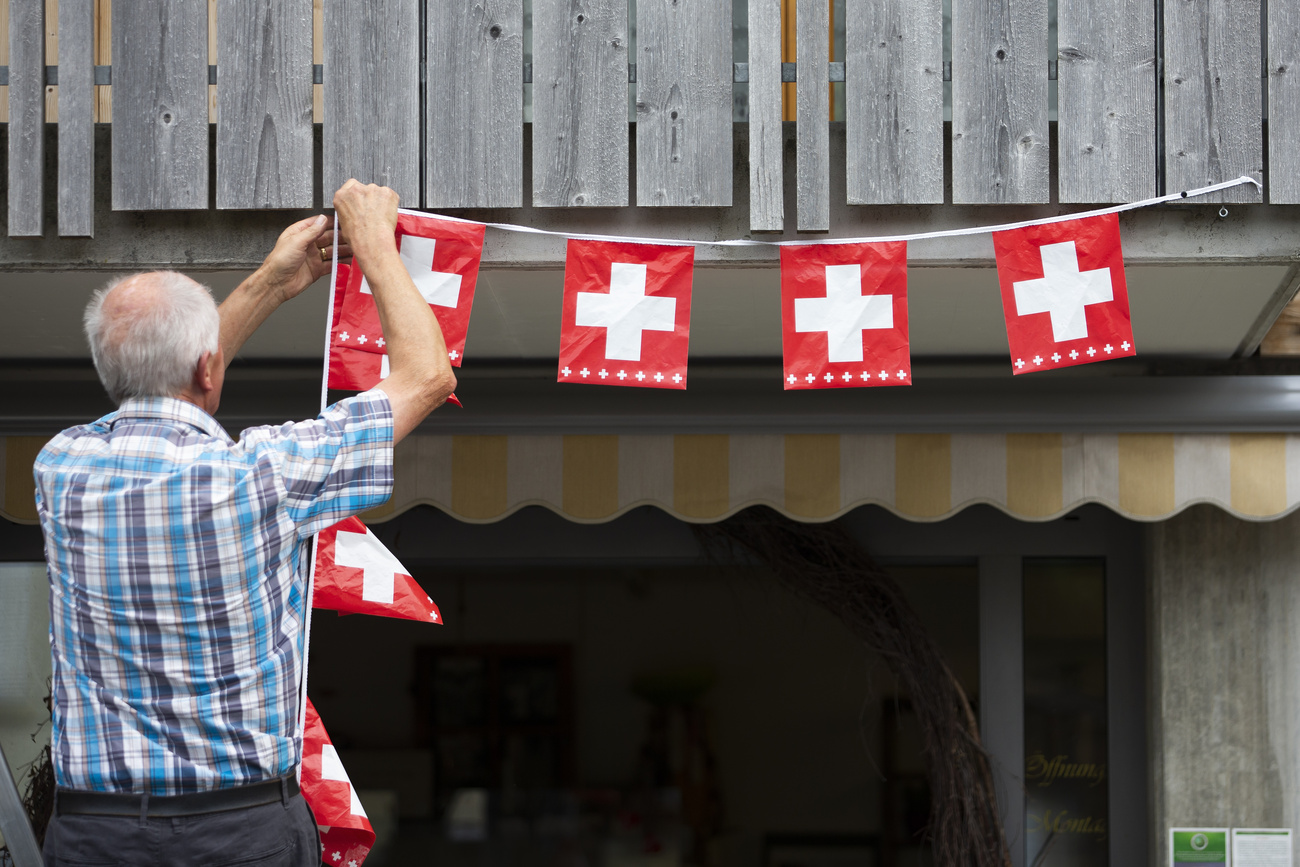
WEF further distances itself from Russia ahead of annual meeting in Davos

The World Economic Forum, which will hold its annual meeting in Davos starting on May 22, has been distancing itself from Russian delegates, many of whom have been regular participants in WEF events. Swiss media reported on Sunday that the rupture between the WEF and Russia is deeper than previously known.
According to the German-language paper NZZamSonntagExternal link, the first in-person WEF annual meeting in two years is unlikely to have any political or business leaders from Russia on the participants list. The paper reports that the WEF “not only uninvited sanctioned Russians, but for the first time since the Gorbachev era there will probably be no Russian participation at all”.
A spokesperson for Roscongress Foundation, a non-financial development organisation backed by the Russian government to advance the country’s economic potential, confirmed to the paper that there will not be a Russia House during the WEF this year. She also expected that no one from Russia will attend.
In response to the invasion of Ukraine in late February, the WEF froze all ties with Russian entities and announced it would not work with any sanctioned person or entity as Politico reportedExternal link in March. On February 27, WEF founder Klaus Schwab and WEF President Børge Brende put out a statementExternal link condemning “the aggression by Russia against Ukraine, the attacks and atrocities”.
Russian politicians and economic elite have been regular participants in the annual meeting and various WEF initiatives. As the NZZ reports, three Russian companies – Sberbank, VTB and the energy company Gazprom were all WEF strategic partners, which means they pay about CHF600,000 a year. “The community of Strategic Partners comprises 100 leading companies from around the world, each selected for their commitment to improving the state of the world, indicates the WEF on its websiteExternal link.
WEF spokesperson Samuel Werthmüller told the paper that no more Russian money flows to the WEF.
Political stakes
As recently as January 2021, Russian President Vladimir Putin gave a special addressExternal link at a virtual WEF gathering. He attended the event in person in 2009. However, the relationship has become increasingly tense. In 2018, a Russian delegation threatened to boycott the annual meeting after the WEF excluded some Russian businessmen who had been targets of US sanctions.
CH-Media reported that the WEF has invited Ukrainian President Volodymyr Zelensky to attend the annual meeting. However, the Ukrainian embassy in Bern told the NZZamSonntag that Zelensky has not confirmed whether he will accept the invitation.
The pandemic caused the WEF to postpone the annual gathering, which usually takes place in January, multiple times. It was eventually rescheduled for May 22 to May 26. The programme and participants’ list have not been released.

In compliance with the JTI standards
More: SWI swissinfo.ch certified by the Journalism Trust Initiative
















![The four-metre-long painting "Sonntag der Bergbauern" [Sunday of the Mountain Farmers, 1923-24/26] had to be removed by a crane from the German Chancellery in Berlin for the exhibition in Bern.](https://www.swissinfo.ch/content/wp-content/uploads/sites/13/2025/12/01_Pressebild_KirchnerxKirchner.jpg?ver=a45b19f3)











You can find an overview of ongoing debates with our journalists here . Please join us!
If you want to start a conversation about a topic raised in this article or want to report factual errors, email us at english@swissinfo.ch.